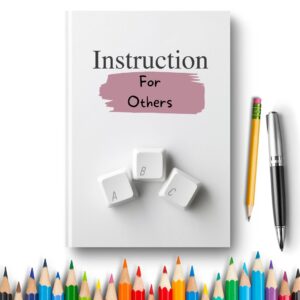When is the last time you had a hard conversation You? Did it feel like a productive endeavor? Or maybe you felt like you’d been dragged through a real life version of Mission Impossible with little more than exhaustion by the closing credits.
No one likes them, but having a plan on how to approach tough talks thoughtfully can be valuable information when you want to communicate about tense topics in a constructive way with important people in your life.
Here are 4 Rs to help you do just that.
Reasons
Result
Responsibility
Rehearsal
REASONS; know your reasons for having the conversation.
Many times we aren’t clear on our reasons for entering a tough talk, but this is important to understand before you start a dialogue. Opening communication on a tense topic without a clear idea of why you want to have the conversation in the first place runs the risk of things going sideways and taking a detour you didn’t intend. Also, without doing this internal investigation, you may be harboring reasons you’re not aware that can hijack the exchange in a way you don’t want and later regret. Here are three common hidden reasons that can wreak emotional havoc:
1.) To punish the other person in some way.
2.) To control the other persons thoughts, feelings or actions.
3.) To discharge or outsource your own emotional confusion or distress onto the other person in the hopes that they’ll resolve it or help you feel better.
In contrast, here are three reasons that have a high probability for a constructive conversation that leads to more closeness and connection on the other side.
1.) To let the other person in on what you’re thinking and feeling.
2.) To set a boundary by letting the other person know how you will respond to their actions in the future.
3.) To take responsiblity for your own emotional self-care by expressing your thoughts and feelings in an honest and open way.
RESULT; know the result you want and intend.
Once you know your reasons, you’ll be better able to determine the result you want. Without spending some time on this “R,” we can easily find ourselves wanting a result we have no power to create. For example, if the result we want is to get the other person to understand us, agree with us or do what we want, we’ll set ourselves up to feeling anxious and maybe even defensive right out of the gate because we attached to an outcome we can’t control. In contrast, if the result we want is to communicate certain things that are important for us to share in a way that’s honest and clear, that’s a desired result that can support and empower us through the process.
RESPONSIBILITY; get clear on your thoughts and feelings and take responsiblity for them.
One of the most important factors in having a constructive exchange is to go in with clarity on who’s responsible for what. Believing we have to take care of the other person’s feelings at the expense of our own or vice versa will prevent us from showing up an authentic way. Giving yourself permission to speak honestly (but respectfully) and extending the same to the other person will set the stage for genuine connection, even when you’re not on the same page. Remember that you agreement is not a prerequisite for connection. Most relationship disagreements don’t ever get resolved, they just circle back around. Luckily, resolution is not required to maintain and even deepen connection, the necessary ingredient is the willingness to continue to stay engaged, present and open to hearing the other person’s perspective, even if it’s not the same as yours. Breakdown happens we we dismiss each other, walk away or shut down. So be intentional about taking care of your side of the street; remember that you’re in charge of how you act no matter what the other person does and be willing to disagree without having to disconnect.
REHEARSE; Decide ahead of time what you want to say.
I always like to write it down and often have it in front of me so I don’t get off track or forget important points. It also helps to spend some time actively thinking about what you appreciate about the other person, why you care about them and how you value the relationship. Be sure to express those things directly. It’s always a good idea way to open a conversation on a this kind of positive note. The other part of rehearsing is to find the names of your feelings and have them top of mind so you can share them. Consider ahead of time how the other person might feel and try to identify those feelings as well. Emotions are likely to run high, and spending too much time in debate mode over content risks losing the plot. Make it a point to bring feeling words into the arena throughout to help keep things grounded.



